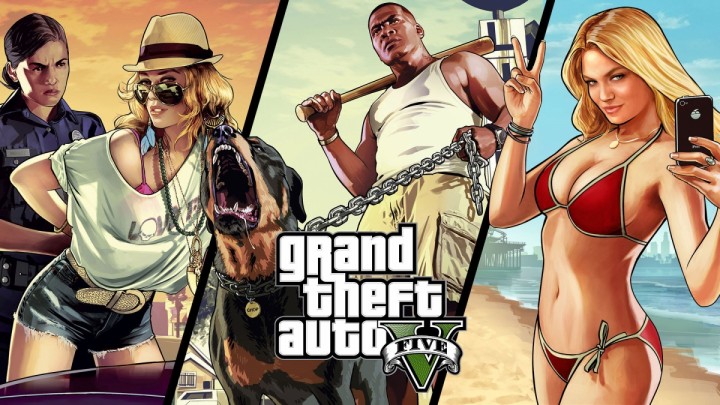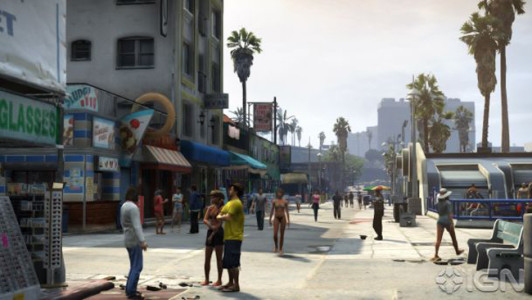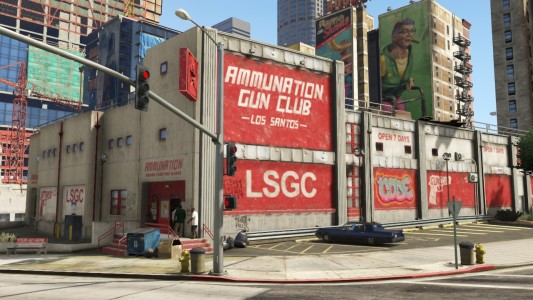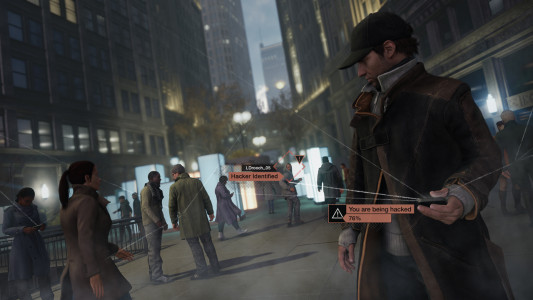While many complain about hyper-realism in games such as Grand Theft Auto (GTA) leading to real world violence, not many discuss the consequences of such realism in terms of design and how it can affect in-game player behavior. I will use GTA V as the prime example because of the extent it goes to for the sake of realism (I mean, c’mon, when your car blows up, you have to make an insurance claim).
As players speed rapidly down Los Santos’ vibrant streets, we see the beautifully detailed buildings, our fellow drivers on the road, the menacing and very annoying LSPD, and the pedestrians (or targets as some would call them). But if we slow down, what do we see? What do we hear? Pedestrians interacting with one another, having outlandish conversations, we see storefronts open to our exploration, and a host of other elements creating a living world. This is reinforced constantly by things like advertisements, television shows, and social networks, all mirroring our own reality while giving this in-game world it’s own distinct feel.
Aside from these visual elements, we see this world react to our actions. Tear down the street while pushing other’s aside, you will receive a “Hey!” or “watch where you’re going!”. Slam into a car and some drivers will exit their vehicles, ready to beat you bloody. None of these reactions are particularly new, but they are becoming more and more sophisticated and realistic. It is becoming clear, there are consequences to the things we do. Even the police force reacts quicker and more forcefully to players actions, which can lead to a decrease in general mischief.
All of these things coming together have the ability to alter a players actions, making a game so hyper-realistic, so much like our world, that we begin to behave as we would in our own. I first noticed this when stopping at an in-game store one day. I noticed I pulled into what resembled a handicap spot, I realized my offense, got back into my car and moved it. As I walked in, I dropped the controller and stared at the screen realizing what I had just done. I had allowed rules of our world to instantly kick in within this virtual one. I found it incredibly funny but mostly it astounded me, and even creeped me out just a bit.
While immersion is a goal dev’s should strive for, it can be limiting. Watch_Dogs for example goes to great lengths to create a living, breathing Chicago. Ubisoft most definitely achieves their goal, but the reason we all know it is a game, and are constantly reminded of that, is our ability to hack the world around us.
In games such as GTA V, we spend most of our time doing real world things, with no extraordinary powers such as the aforementioned hacking in Watch_Dogs, it is much easier to begin to behave as we would in the real world. Personally I felt it wasn’t worth the annoying harassment of the LSPD to commit unnecessary crimes and pull some of the stunts I would have pulled in previous iterations of the title.
Again, I do not support the claim that in-game violence causes real world violence, but it is interesting, if a game can tap into our real world reactions and sensibilities, how can we so vehemently deny that it does not work the other way around at least in some respect?





